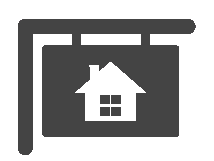Where To Start
Be Ready to Make an Offer
House shopping is an exciting time!
Get pre-approved for a loan first so you can be ready to make an offer when you find a home you love.
Pre-Qualified
In order to be pre-qualified, a lender may or may not check your credit score and won’t require documentation, only going off what you tell them. This will give you an idea of what you could qualify for, but when you’re serious about buying, you’ll need to get pre-approved.
VS
Pre-Approved
To be pre-approved, the lender will pull your credit and ask you for documentation, to verify your finances. Before making an offer on a house, it is best to get pre-approved to show sellers your offer is serious and that a lender has already approved you for enough money to purchase the home.
Which Type of Loan is Right for You?
Conventional Loan
The most common type of home loan, which is offered through private lenders.
FHA Loan
Loans designed for those with high debt-to-income ratios and low credit scores, and most commonly issued to first-time homebuyers. Offered by FHA-approved lenders only and backed by the Federal Housing Administration.
VA Loan
Loans designated for veterans, spouses, and reservists, offered through private lenders and guaranteed by the U.S. Department of Veterans Affairs.
USDA Loan
Loans for homebuyers in designated rural areas, backed by the U.S. Department of Agriculture.
Type of Loan
Down Payment
Terms
Mortgage Insurance
Minimum Credit Score
Conventional
3-20%
15-30 Years
On Down Payments Under 20%
620
FHA
3.5-20%
15-30 Years
For 11 Years Or Life of the Loan
500
VA
None
15-30 Years
None
640
USDA
None
15-30 Years
None
640
To determine loan eligibility, lenders typically required the following types of documents from each applicant:
Income Documents

Federal tax returns; last 2 years

W-2s: last 2 years

Pay stubs: last 2 months

Any additional income documentation: pension, retirement, child support, Social Security/disability income award letters, etc
Asset Documents

Bank statements: 2 most recent checking and savings account statements

401(k) or retirement account statement and summary

Other assets: statements and summaries of IRAs, stocks, bonds, etc.
Other Documents

Copy of driver’s license or ID and Social Security card

Addresses for the past 2-5 years and landlord’s contact info if applicable

Student loan statements: showing current and future payment amounts

Documents relating to any of the following if applicable: divorce, bankruptcy, collections, judgements or pending lawsuits
Determine the features you are looking for in your ideal home and prioritize which items are most important to you. No house is perfect, but this will help us find the best match for you.
Type of Home

Single Family Home

Townhouse

Condo

Other ______
Condition of Home

Move-In Ready

Some Work Needed is OK

Fixer Upper
Desired Features

Bedrooms

Bathrooms

Car Garage
Small or Large Yard

Ideal Square Footage
Desired Location/Neighborhood/School District
Must Have
Would Like to Have
When we list your home, your listing will receive maximum exposure using our extensive marketing techniques.
Investigate The Area
Drive around neighborhoods that interest you to get a feel of the area, how the homes are cared for, what traffic is like, etc.
Ask Around
Talk to family, friends and co-workers to see if anyone might know ofa house for sale in an area you’re interested in. One of them may evenknow of someone that’s thinking about selling but hasn’t put thehouse on the market yet.
Keep an Open Mind
Finding your dream home isn’t always an easy task! Have a prioritieslist but keep an open mind when viewing houses.
Take Pictures & Notes
When you visit multiple houses it gets difficult to remember specificdetails about each one. Take photos and notes while touring housesso that you can reference them later when comparing the propertiesthat you’ve seen.
Be Ready to Make an Offer
When you find a home you want to buy, keep in mind there may beothers interested in it as well. Be ready to make a solid offer quickly inorder to have the best chance at getting that home.
When we have found a home that you’re interested in buying, we will quickly and strategically place an offer.
PUT IN A COMPETITIVE OFFER
We will decide on a reasonable offer price based on:
- Current market conditions
- Comparable properties recently sold in the area
- The property value of the house
- The current condition of the house
- Are there Multiple Offers
- Appraisal Gap Coverage
- Easy Inspection Guarantee
PAY IN CASH VS. LOAN
Paying in cash versus taking out a loan offers a faster closing timeline and less chances of issues arising, making it more appealing to sellers.
PUT DOWN A LARGER DEPOSIT
An offer that includes a larger earnest money deposit presents a more serious and competitive offer.
ADD A PERSONAL TOUCH
Include a letter to the sellers with your offer, letting them know what you love about their home. Adding this personal touch can give you an advantage over other offers by making yours stand out from the rest.
OFFER A SHORTER CLOSING TIMELINE
An offer with a shorter timeframe for closing is generally more attractive to sellers over one with an extended time period with a house sale contingency. A typical closing timeframe is 30-45 days.
Once the seller has accepted your offer, both parties sign a sales agreement and you’re officially under contract.
PUT YOUR DEPOSIT INTO AN ESCROW ACCOUNT
Your earnest money deposit will be put into an escrow account that is managed by a neutral third party (typically a title company) who holds the money for the duration of the escrow period. They will manage all the funds and documents required for closing, and your deposit will go towards your down payment which is paid at closing. Your Earnest money amount can vary and is set by the seller of the home.
Schedule A Home Inspection
Home inspections are optional but highly recommended to make sure that the home is in the condition for which it appears. Inspections are typically completed within 10-14 days after signing the sales agreement.
RENEGOTIATE IF NECESSARY
The home inspection will tell you if there are any dangerous or costly defects in the home that need to be addressed. You can then choose to either back out of the deal completely, ask for the seller to make repairs, or negotiate a lower price and handle the repairs yourself.
COMPLETE YOUR MORTGAGE APPLICATION
Once you’ve come to an agreement on the final offer, it’s time to finalize your loan application and lock in your interest rate if you haven’t done so already. You may need to provide additional documentation to your lender upon request.
ORDER AN APPRAISAL
An appraisal will be required by your lender to confirm that the home is indeed worth the loan amount. The appraisal takes into account factors such as similar property values, the home’s age, location, size and condition to determine the current value of the property. The appraisal is ordered by your lender and paid for by you.
It’s extremely important to not do any of the
following until after the home buying process
is complete:
Buy or Lease a Car
Change Jobs
Miss a Bill Payment
Open a Line of Credit
Move Money Around
Make a Major Purchase
Any of these types of changes could jeopardize your loan approval. It’s standard procedure for lenders to also do a final credit check before closing.
You’re Almost There!
Insurance Requirements
Most lenders require both homeowner’s insurance and title insurance. Homeowners insurance protects your home and possessions against damage and theft, while title insurance protects the lender and/or homeowner from financial loss against claims regarding the legal ownership of a home. Policies vary so it’s recommended to get quotes from multiple companies to compare price, coverage and limits.
Closing Disclosure
At least 3 days before closing, lenders are required to provide you with a Closing Disclosure with your final loan terms and closing costs for you to review. Closing costs for the buyer typically range from 2-5% of the purchase price, which can include lender fees, lender’s title insurance, and HOA dues if applicable.
Final Walk through
Within 24 hours of closing we will do a final walk through of the home before signing the final paperwork. This last step is to verify that no damage has been done to the property since the inspection, that any agreed upon repairs have been completed, and that nothing from the purchase agreement has been removed from the home.
Next Step: Closing!
Closing is the final step of the buying process.
On the day of closing you’ll be going over and signing the final paperwork, and submitting a cashier’s check (or previously arranged wire transfer) to pay the remaining down payment and closing costs.
Property ownership is then officially transferred from the seller to the buyer.
Items to Bring To Closing:

Government Issued Photo ID

Mailbox Keys

House Keys









